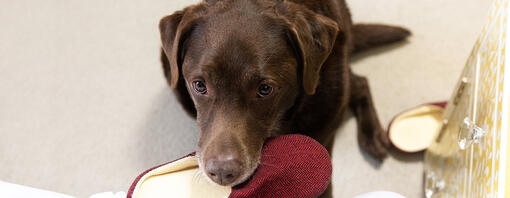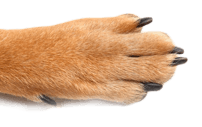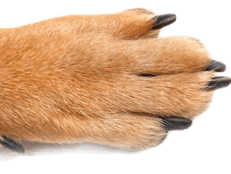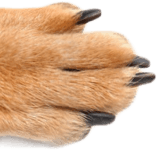
Find out how chewing is a natural and essential behaviour for all dogs, particularly puppies, driven by exploration, teething, and stress relief. To prevent destructive chewing, it's crucial to provide appropriate, engaging chew toys and manage their environment, addressing any underlying behavioural issues like boredom or anxiety.
You might as well ask how to train a fish not to swim! All dogs need to chew – it is part of being a dog – and it is especially part of being a puppy. What is important however is that you give your puppy appropriate outlets for this natural need to chew, while preventing them from chewing on inappropriate or unsafe things (like furniture, cables, shoes etc).
Chewing becomes a problem when puppies have no safe and rewarding things of their own to chew, or have never been given an appropriate outlet for this necessary behaviour, and so they will chew on anything they can find.
Why do Puppies Chew?
In their early weeks, puppies are inquisitive and are learning about the world but they have limited ways to explore and investigate new objects in their environment. The main one is to sniff things and put them in their mouth. If it tastes good or feels good – or maybe makes an interesting noise - it is natural for them to have a chew! This in itself is rewarding and so is likely to be repeated.
Then they start teething, and that gnawing will be one of the few ways they can ease a sore mouth and gums – which makes chewing even more rewarding. This can start as early as six weeks of age as their deciduous teeth begin to fall out and their adult teeth grow in. By around 7 months of age they will have a full set of 42 adult teeth.
Chewing also is important for the proper exercise and development of a dog’s jaws and neck muscles. This is important for dental health as well ensuring they can properly chew and digest food.
Some of our best loved breeds are gundogs or gundog crosses – breeds who are very mouth oriented as that was a key part of their original job. In these breeds and individuals, the instinct to put things in their mouth is even stronger, as we intentionally created dogs who have a passion for picking things up and carrying them around – and find it hugely rewarding to do so.
Once you understand the reasons behind a puppy’s need to chew, it is much easier to see how important it is to give them appropriate outlets for that natural and necessary behaviour, while avoiding them chewing indiscriminately on things around the home.
At What Age Do Puppies Stop Chewing?
They don’t – dogs need an outlet for chewing and gnawing all their lives but the good news is that the need to chew as part of exploration will reduce as they get to know the world around them and have more developed ways to react to novelty, and of course teething and the development of adult teeth will be a thing of the past after adolescence. And of course, you have taught them what is appropriate to chew on and what isn’t, so destructive chewing is far less likely.
Lifelong chewing and gnawing helps keep a dog’s jaws and teeth healthy, helps digestion and oral hygiene, provides great enrichment opportunities – and more to the point, as it is linked to nutrition and survival, dogs enjoy it and find it rewarding.
As well as giving a dog great enrichment opportunities, chewing is also a stress buster for dogs. If they are bored and have nothing to do, it injects some interest into a dull day. If they have nothing of their own that is rewarding or interesting to chew, they will likely seek an outlet for their natural chewing behaviour. And if they are stressed, lonely, anxious, worried or frustrated, chewing releases feelgood neurotransmitters that can calm and soothe a dog, so they may well use it as therapy - in the same way we might bite our nails, drink too much, or eat our own bodyweight in pizza in order to feel better after a difficult day.
When does natural chewing become a problem?
If you don’t provide an outlet for a puppy or dog’s need to chew, then they are going to chew and gnaw on things that you don’t want them to.
Besides that, dogs can chew or destroy things as a symptom of behaviour problems – either in an attempt to escape, to self-soothe, or even to self-mutilate. This is a long way from natural chewing as the causes and treatments are totally different, and tends to happen at specific times and places.
The main behavioural causes are boredom, frustration and separation related issues, and these need behavioural help.
How Do You Stop a Puppy from Chewing Things They Shouldn’t?
- Firstly, recognise that a dog needs to chew. Provide them things of their own that they can gnaw safely and that are more interesting and enjoyable to chew than the things you have lying around that they might otherwise get their teeth into. Some of these toys can be filled with food, others make exciting noises, or have great textures. Experiment to find out what your dog enjoys the most, as every dog is different.
- If you see your puppy starting to chew something they shouldn’t, swap it for a more appealing toy that is more rewarding for them to gnaw on. Don’t get angry or shout at them – this is natural behaviour and it is up to you to channel it appropriately. Especially don’t chase them to try and grab the item as you will just turn it into a fun game or in some dogs, encourage resource guarding.
- In their early weeks, puppies need constant supervision so they learn what you expect of them – and that includes what they can and can’t chew. This might mean keeping them in one room with you or using a play pen if you are distracted.
- Tidy up – especially while your dog is a puppy or adolescent. Don’t expect your dog to somehow know what is theirs and what is yours – or what is safe and what is dangerous. Use stair gates if necessary to keep your dog out of rooms where there are precious items, potentially toxic plants or where you can’t tidy up, unless you are able to watch them. Make sure the whole family gets behind this tidiness plan!
- Give them an outlet for their natural instincts. If you own a dog from a breed or type whose original job would be to use their mouth (to retrieve, carry, pull, bite etc), make sure that they get the chance to do that in an appropriate way as part of their exercise, play, games, or enrichment.
- And it’s not just chewing they need an outlet for. Whatever they were originally developed to do, you should be giving them an appropriate outlet for. That could be digging, or sniffing, simulated hunting etc. This can help prevent boredom and frustration.
- Look at their day-to-day routine. Chewing – especially destructive chewing – often comes from boredom. If your dog is being left on their own for long periods of time, not getting the exercise they need, or not getting the social contact they need, then they only have limited ways to express that boredom and deal with the frustration and pent-up energy that brings.
- Is your dog worried, fearful, anxious or lonely? Chewing relieves stress in dogs hence why often people come back having left their dog ‘home alone’ to a scene of devastation. This destructive behaviour is often a symptom of severe separation related behaviour issues – as is chewing and scratching near doors or windows, or chewing themselves.
- Make chew toys or games more enjoyable than chewing anything else. Fill them with food, sometimes feed them their meals this way, and for those breeds that love to rip and tear (terriers), use destructible toys such as food inside a kitchen roll tube or thin cardboard box.
- If you are concerned that your dog is chewing or being destructive because of a deeper behaviour issue, contact an accredited behaviourist for help and advice.
- Chewing is a natural behaviour for all dogs – especially puppies and adolescents. By making sure you give them an appropriate and rewarding outlet for this behaviour with for example dog treats, you can make sure you keep your dog – and your house – safe.
FAQ
Most dogs who are given an appropriate outlet for chewing and gnawing, will grow out of opportunistic chewing after adolescence. Chewing is a natural part of a dog’s development as above - and dogs will continue to chew and gnaw all their lives. What is important is that owners manage it properly so that it doesn’t become a problem.
Every dog is different. Some will hardly chew at all, and others will chew up to and after adolescence. What makes the difference is how that natural need to chew is managed in each individual puppy, by giving them an appropriate outlet and opportunities for this most doggy of behaviours.




